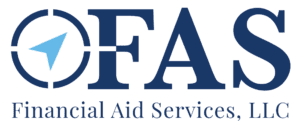NASFAA 2024: Key Takeaways for Financial Aid Professionals
 There is a reason NASFAA is often called the Superbowl of Financial Aid Conferences. Like the Superbowl, this industry event is highly anticipated, bringing together the best and brightest. If your team was like ours, there was a game plan from the moment they arrived. Our goal, built on hours of preparation, was to get a deeper understanding of three things.
There is a reason NASFAA is often called the Superbowl of Financial Aid Conferences. Like the Superbowl, this industry event is highly anticipated, bringing together the best and brightest. If your team was like ours, there was a game plan from the moment they arrived. Our goal, built on hours of preparation, was to get a deeper understanding of three things.
- Where the industry is
- What are opportunities for change
- How to address the evolving needs of our peers
Within the first few hours, conversations made it clear that the industry needs a new playbook to take on daily challenges. As higher education continues to redefine itself, what are the old plays you’re relying on to drive wins? The key takeaways from NASFAA 2024 underscored the need to embrace change and redefine how we work in the industry.
Financial Aid Compliance Challenges
Maintaining compliance has become increasingly complex, with staffing shortages and changes happening faster than ever. Attendees expressed concern about the risk but often lacked the resources to address it effectively.
Compliance isn’t just a financial aid issue. It impacts the entire institution, affecting enrollment goals, brand reputation and financial liability. Addressing these challenges requires strategic action and resource management across functional departments. Below are a few strategies to help you overcome compliance challenges.
Stay in The Know on Regulation Updates
Staying on top of new regulations is crucial. For example, understanding the Financial Value Transparency (FVT) and Gainful Employment (GE) reporting requirements, which became effective July 1, 2024, is essential. These regulations will likely apply to most institutions with few exemptions and no delays expected.
Compliance is an institutional responsibility involving several departments. Financial aid administrators need to be involved, but it should not fall entirely on them. For more detailed information, you can refer to the NASFAA News updates. Start by staying informed and collaborating across departments to manage compliance and minimize risk.
Maintain Your Policy and Procedures
This might seem obvious, but it’s crucial. Annual reviews are the minimum but consider building a workflow that notifies you of recent changes monthly or quarterly. Schedule regular intervals for focusing on updates. Championships are won at practice, and regular reviews ensure you stay compliant.
Lean into External Partnerships
Did you know that 71% of college leaders are teaming up with strategic partners to boost their internal operations? It’s all about the speed and expertise these partnerships bring.
With over 30 years in the industry, we’ve encountered just about every challenge out there and found solutions for them all. Curious about how we can support your institution? Schedule a call with a member of our team here.
Financial Aid Staffing Challenges
One challenge has remained constant, financial aid teams are under-resourced, understaffed, and struggling. Even with new hires, institutions are struggling to manage the workload effectively.
Hiring new staff is a positive step, but success lies in how quickly you can get new hires to work in their role as soon as possible. How are the most successful institutions taking on this challenge? By finding ways to accelerate onboarding and communicate institutional knowledge effectively. Here are a few ways you can bridge that gap with new hires.
Training Your Financial Aid Team
Financial aid professionals must have a nuanced set of competencies, including excellent communication skills, empathy and a deep understanding of ever-changing regulations, all while remaining dedicated to student success.
Training must go beyond the fundamentals and tailor to the specific requirements of each institution. Comprehensive training programs are essential to ensure staff are well-prepared to handle these demands. Here are a few strategies to enhance training for your team:
- Customized Training Programs: Develop training programs that address both the general principles of financial aid and your institution’s specific needs.
- Continuous Professional Development: Encourage ongoing learning through workshops, webinars, and conferences.
- Peer Mentoring: Implementing a mentoring system can accelerate onboarding and help new employees adapt to the team more smoothly.
At FAS, we offer tailored training and consulting services designed to support your team whether they are seasoned professionals or new to the industry. Our programs are crafted to ensure your team doesn’t just meet but exceed expectations.
Staffing Solutions
The issue of being short-staffed continues to plague the financial aid industry. Even with new hires, institutions need help managing the workload effectively. Finding ways to optimize time and resources is critical. Automation and leveraging technology to its full capacity were recurring themes throughout the NASFAA 2024 conference.
- Leverage Technology: Automation empowers your team to streamline processes and reduce the burden of manual processes.
- Smart Staffing Solutions: Consider partnering with external organizations specializing in financial aid staffing and outsourced processing.
These strategies aren’t earth-shattering, but they’re the first step to enhance efficiency and effectiveness, ensuring that your team is well-prepared to meet the demands of the job.
Your Strategic Advantage
NASFAA 2024 highlighted the pressing issues facing financial aid professionals today. From compliance and training to technology and morale, the path forward requires a collaborative effort and a commitment to continuous improvement. By facing these challenges directly, we can make sure our institutions are ready to help students succeed.
At FAS, we are committed to helping you with financial aid by offering expertise and solutions to navigate its complexities. Just like a Super Bowl-winning team, success in financial aid requires strategic planning, teamwork, and adaptability. Together, we can create a more efficient, supportive, and successful environment for both staff and students.
